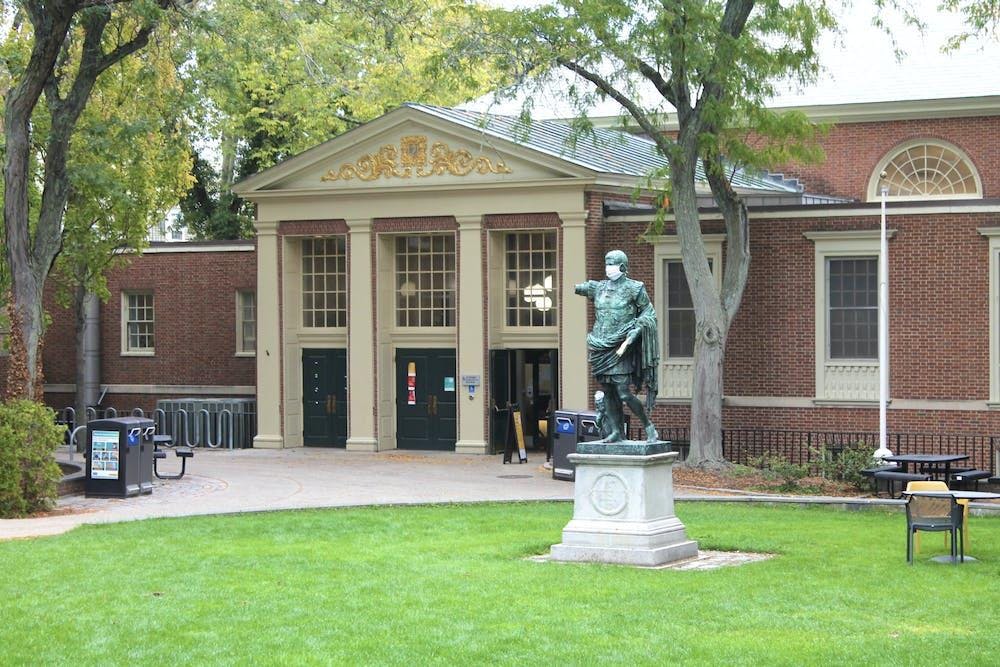The Sharpe Refectory opened a new halal eating station on Sept. 20, according to a recent University press release. Alongside the station, the Ratty also unveiled its new kosher and allergen-aware kitchens — prompting comparisons and broader discussions of the Muslim student experience on campus, two students told The Herald.
While the University previously offered specialized dining options for students with dietary restrictions, those options required students to enroll in specific dining programs beyond standard meal plans, according to the press release.
Dorra Guermazi ’24, a member of the Brown Muslim Student Association, hopes the new dining options will alleviate some of the challenges she previously faced when searching for meals on campus.
“Sometimes (Dining Services) would mismark things,” Guermazi said. “A lot of things have alcohol in them, (and) even if it (wasn’t) pork, (food) may have (had) gelatin or things like that, which are not halal.”
According to Barboza, Dining Services will have stricter protocols in place moving forward to ensure that foods are labeled and prepared properly.
“Although we have offered Halal food for many years in Brown Dining throughout a number of our dining units, we have now enhanced the program both in food offerings and in stricter measures in how we prepare these foods,” Barboza wrote.
“We have partnered with Halal Monitoring Services … who has granted us full certification for our halal Program,” he added.
According to HMS’s website, the organization’s certification process requires regular monitoring of halal meat providers by individuals with expertise in the field. Zabiha halal refers to Islamic methods governing how an animal’s meat must be prepared to be considered halal, according to the website.
With the expansion of halal dining options, “I hope people ask questions and potentially have the space to do research or ask other people what (eating halal) means,” Guermazi said.
Guermazi added that she hopes the new attention from the dining changes will inspire greater recognition of Muslim students’ experiences on campus more broadly, pointing to some of the shortcomings of the new station.
“It feels like the (kosher) station is much more important than the halal station,” she said, comparing the size of the kosher kitchen to the smaller halal station. “It’s hard not to compare (the halal station) to the other options” being introduced.
According to Barboza, while the “kosher kitchens may have a larger footprint than the halal station, they are equally important to our program, and we will continue to enhance all dining options for all students.”
“In addition, we offer halal food items in almost every dining unit that are prepared fresh on a daily basis,” he added.
Semaya Robinson ’25, president of BMSA, said that Muslim students have faced similar challenges — “being pushed into the margins” — on campus in the past.
Robinson noted that the Muslim Students’ Center, located in the basement of Champlin Hall, currently lacks a bathroom and, until recently, lacked furniture following flooding that occurred over the summer.
“The Muslim Students’ Center has been impacted (by flooding) at least three times in the last 10 years,” said University Chaplain Janet Cooper Nelson. “We had just finished refurbishing that space two years ago with a lot of expensive furniture, and it all had to be discarded.”
“We are all worried about when it will flood next,” Robinson wrote.
Cooper Nelson acknowledged that the center currently lacks a bathroom, but cited a storage space within the center as a potential location for a new bathroom going ahead.
“It’s the space (that) we have for now, (so) let’s make the space as good as we can (while) keeping our eye out for something that might be the next wonderful space for students,” Cooper Nelson said, referring to the center’s current location.
“It feels like a lot of the time, the Muslim students are recognized but not as much as other student groups,” Guermazi said.

Aniyah Nelson is a University News editor overseeing the undergraduate student life beat. She is a senior from Cleveland, Ohio concentrating in Political Science and Sociology. In her free time, she enjoys listening to music and watching bloopers from The Office.





